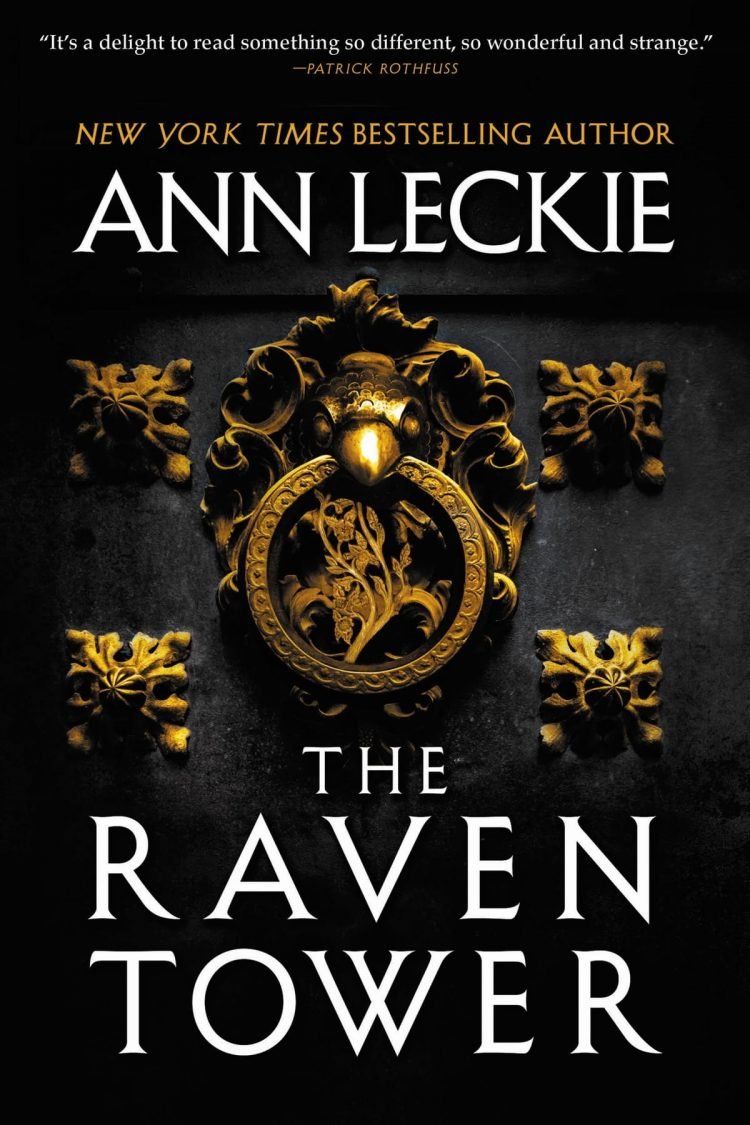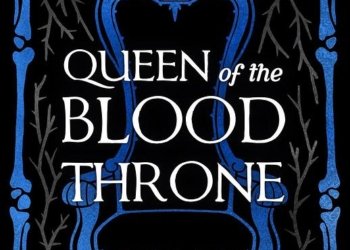No products in the cart.
The Raven Tower by Ann Leckie
Ann Leckie, whose debut book Ancillary Justice won every major genre prize on offer, is likely the only author to have had as significant of an impact on the world of Science Fiction & Fantasy in the past ten years. For a comparison, we’d definitely need to look at the debuts of writers like Brandon Sanderson and N.K. Jemisin, although I’d argue that neither of them has seen the precipitous climb to fame and success that Ann Leckie has. It should therefore come as no surprise that I leaped at the chance to read Leckie’s fantasy book as soon as I learned she was writing one.
The Raven Tower’s cover caught my eye, but I swiftly slammed it shut out of frustration at yet another attempt to defy expectations by altering the way authors tell stories. I put it on my distressingly shaky To Read list and started reading Christopher Paolini’s The Fork, The Witch, and The Worm. It didn’t take me long, though, to pick up The Raven Tower again when I was in a better mood, and after persevering through more than a dozen heartbeats of frustration, I was immediately captivated.
Yes, Ann Leckie again plays with the contours of narrative delivery: The book is written in the storytelling mode of an omniscient first-person witness which, when I saw the opening page, I thought would be a hindrance, but which quickly proved to be one of the keystones of this story. The protagonist’s name is Eolo – although I would argue that Eolo is not the main character of this book, a role I would give to the aforementioned omniscient first-person witness narrator who is, in actual fact, a giant rock and a god.
I believe that many of the glowing reviews that are splattered across the back cover of this book were written by fantasy writers who hadn’t read Leckie’s original Imperial Radch trilogy. The Raven Tower actually has a lot in common with that series because it uses some of the author’s favourite playthings, like godhood, viewpoint, gender, and social positions. If this is your first time reading Ann Leckie, you could think it’s groundbreaking, having already missed her ground-breaking entry into the literary world.
The grandeur of The Raven Tower is not diminished by the author’s reliance on her chosen tropes, styles, and themes, though. I respectfully submit that this will rank among the top 5 books of this decade since I find it difficult to believe that a better book will be released in 2019. Leckie is a power that should not only be taken seriously but also humbled. Minor concerns, like the clear similarity between Frodo Baggins using the same Ring to escape from Boromir in The Lord of the Rings: The Fellowship of the Ring and Bilbo Baggins discovering the Ring of Power in The Hobbit, are unimportant in the face of such a literary triumph. Leckie has the power to humiliate any self-styled literary critic eager to denigrate the Science Fiction and Fantasy subgenre—and I believe she has already done so.
The importance of The Raven Tower can be found in both the story told and the way the author writes, defying literary convention while also providing a non-judgmental, non-obtuse lesson in society politics. Simply put, Eolo is a brilliant character, and the challenges faced, choices made, and feelings felt help draw the reader into the page in a manner that only a select few authors are able to do.
The mythological and magical elements packaged up in the gods who live in this universe, however, form the basis of this story as well as the larger world, which I believe Leckie has written in deeper in some of her short stories (available here). On the back cover, Leckie is praised for copying “Sanderson’s ingenious magic,” but I think this does both authors a disservice. Even in terms of consistency and thoroughness, Leckie’s magic and mythology differ significantly from Sanderson’s. Much of what we have read is realigned in the closing twists and turns, which also flip potential future plots.
Leckie approaches difficult subjects subtly, which is commendable because it avoids being unduly preachy and wonderful because it is so masterfully written. The intricacy with which gender, identity, personality, and godhood are treated is often missed upon first reading.
When it comes to subverting narrative conventions, The Raven Tower is a masterful tour de force. It explores what it means to find identity as both a deity and a human. Unlike any author currently writing, Ann Leckie is likely to be regarded as a literary innovator rather than as someone who was just like everyone else. The Raven Tower is undoubtedly the best book of the year; it is magnificent, subtle, engrossing, and impossible to put down. It is a work of storytelling art that humbles even the most ardent reader.
The Review
The Raven Tower
10 Score
Ann Leckie had published four SF titles set in a far future of mixed interstellar civilizations before turning to fantasy in The Raven Tower. All her earlier work had been well received, and this latest work is no exception. Leckie plots her stories well, and continues to explore cultural alternatives in gender, governance and power relationships.
PROS
- Subtle, subversive, experimental, creative.
- Signature subtlety, sprawling perspective.
- A very original concept for a fantasy novel.
- Complex, Unusual, Amazing.
- Amazing and fascinating.
CONS
- Shallow, Predictable, and Gimmicky.
- The stone very uninteresting.
- The mystery wasn’t great.
- Slow, plodding story about a rock.











